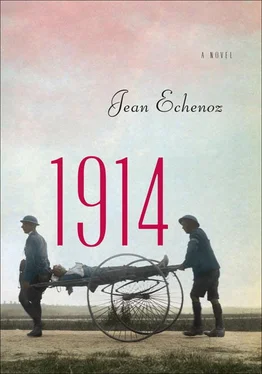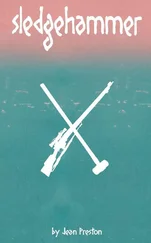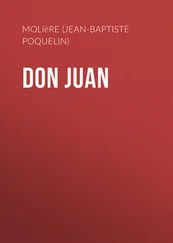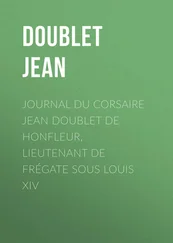That day, brutal shelling had begun in the early morning: at first the enemy had sent over only large-caliber shells, well-aimed 170s and 245s that pummeled the earth deep into the lines, shaking loose landslides that buried the wounded and able-bodied alike, quickly stifling them in avalanches of dirt. Anthime almost didn’t make it out of a hole that suddenly fell in on him after a bomb landed. Escaping hundreds of bullets whizzing by barely a few feet from him and dozens of shells within a fifty-yard radius, jumping this way and that in the hail of debris, he thought at one point he was done for when a percussion-fuse shell fell quite close to him, landing in a breach of his trench they’d plugged with bags of earth, one of which, sliced open and hurled through the air by the shell’s impact, almost knocked him senseless but—luckily—shielded him from the shrapnel. Taking advantage of the general fear and chaos thus sown throughout the network, the enemy infantry chose that moment to attack en masse, terrifying the entire troop into fleeing panic-stricken toward the rear lines screaming that the Huns were coming.
Dragging themselves on their bellies to the nearest hiding place, Anthime and Bossis managed to hide inside a sap—a narrow tunnel leading out from the main trench—running a few yards below the ground, and that’s when the bullets and shells were joined by gases, all sorts of them: blinding, asphyxiating, blistering, sneezing, and tear gases liberally diffused by the enemy with special shells or gas bottles in successive waves and in the direction of the wind. The instant he smelled chlorine, Anthime put on his protective mask and then signaled Bossis to leave the sap and get into the open air where, although they were exposed to projectiles, they could at least escape those even more insidious killers, the particularly heavy vapors that gathered to linger in the bottom of holes, trenches, and tunnels long after their clouds had passed on.
As if all that were not enough, hardly had they clambered from their hiding place when a Nieuport biplane fighter, one of their own, picked that moment to crash and explode near the shelter, [10] shelter: In the forward trenches, officers often had better quarters than the enlisted men, but even the best dugouts were small, muddy rooms, while others were simply rectangular caves cut into the walls of the trench. Some were cubbyholes that could hold only one man, while deep dugouts might extend more than ten feet underground, but unless they were raised at least a foot above the lowest level of the trench, they could be flooded with filth and dangerous debris.
hurling wreckage all over the trench and intensifying a cataclysm of dust and smoke—through which Anthime and Bossis could see the incineration of two airmen killed on impact and still strapped in, transformed into sizzling skeletons hanging by their seat straps. Meanwhile, although unnoticed amid this turmoil, daylight was failing, and when the sun actually went down a relative calm seemed to return for a moment. But it seemed as well that the desired conclusion to the day would be a last display, a final burst of fireworks, for a gigantic bombardment began again, leaving Anthime and Bossis once more covered in dirt from a fresh explosion when a shell landed on the tunnel they’d only just left, which caved in as they watched.
The shelling died down that night, which might almost have allowed them to rest, if they hadn’t had to go all the way to Perthes in the dark through three miles of communication trenches to look for provisions, their supply deliveries having been disrupted by the offensive. Upon his return, Anthime had just enough time before going to sleep to find a letter from Blanche waiting for him with news of Juliette—a second tooth—and to learn from a quartermaster sergeant that the 120th had taken two trenches on the right. On the left, toward the butte at Souain, those across the way had also taken two that had supposedly been immediately clawed back again: in short, no end in sight.
And from the next morning on it went on and on some more, in that perpetual polyphonic thunder beneath the vast entrenched cold. Big guns pounding out their basso continuo, time shells and percussion-fuse shells of all calibers, bullets that whistle, bang, sigh, or whine depending on their trajectory, machine guns, grenades, flamethrowers: danger is everywhere, overhead from the planes and incoming shells, facing you from the enemy artillery, and even from below when, thinking to take advantage of a quiet moment down in the trench, you try to sleep but hear the enemy digging secretly away beneath that very trench, underneath you, carving out tunnels in which to place mines to blow the trench to bits, and you with it.
You cling to your rifle, to your knife with its blade rusted, tarnished, darkened by poison gases, barely shining at all in the chilly brightness of the flares, in the air reeking of rotting horses, the putrefaction of fallen men and, from those still more or less on their feet in the mud, the stench of their sweat and piss and shit, of their filth and vomit, not to mention that pervasive stink of dank, rancid mustiness, when in theory you’re out in the open air at the front. But no: you even smell of mold yourself, outside and in, inside yourself, you, dug in behind those networks of barbed wire littered with putrefying and disintegrating cadavers to which sappers sometimes attach telephone cables, because sappers don’t have it easy. They sweat from fatigue and fear, take off their greatcoats to work more freely, and might hang them on an arm sticking out of the tumbled soil, using it as a coat tree.
All this has been described a thousand times, so perhaps it’s not worthwhile to linger any longer over that sordid, stinking opera. And perhaps there’s not much point either in comparing the war to an opera, especially since no one cares a lot about opera, even if war is operatically grandiose, exaggerated, excessive, full of longueurs, makes a great deal of noise and is often, in the end, rather boring.
ONE FOLLOWING MORNING, much like the others, snow decided to fall along with the shells—at a different rhythm, naturally, for the shells had been less plentiful than usual, only three so far that day—whereas Padioleau decided to complain.
I’m hungry, Padioleau was moaning, I’m cold, I’m thirsty and also I’m tired. Well sure, said Arcenel, just like the rest of us. But I feel very low, too, continued Padioleau, plus I’ve got a stomachache. It’ll pass, your stomachache, predicted Anthime, we’ve all got one, more or less. Yes but the worst part, insisted Padioleau, it’s that I can’t figure out if I feel low because of the stomachache (You’re beginning to piss us off, observed Bossis) or if I’ve a stomachache because I feel low, if you see what I mean. Fuck off, announced Arcenel.
That’s when the first three shells that had flown too far, exploding uselessly behind the lines, were followed by a fourth and more carefully aimed 105-millimeter percussion-fuse shell that produced better results in the trench: after blowing the captain’s orderly into six pieces, it spun off a mess of shrapnel that decapitated a liaison officer, pinned Bossis through his solar plexus to a tunnel prop, hacked up various soldiers from various angles, and bisected the body of an infantry scout lengthwise. Stationed not far from the man, Anthime was for an instant able to see all the scout’s organs— sliced in two from his brain to his pelvis, as in an anatomical drawing—before hunkering down automatically and half off balance to protect himself, deafened by the god-awful din, blinded by the torrent of rocks and dirt, the clouds of ash and fine debris, vomiting meanwhile from fear and revulsion all over his lower legs and onto his feet, sunk up to the ankles in mud.
Читать дальше









